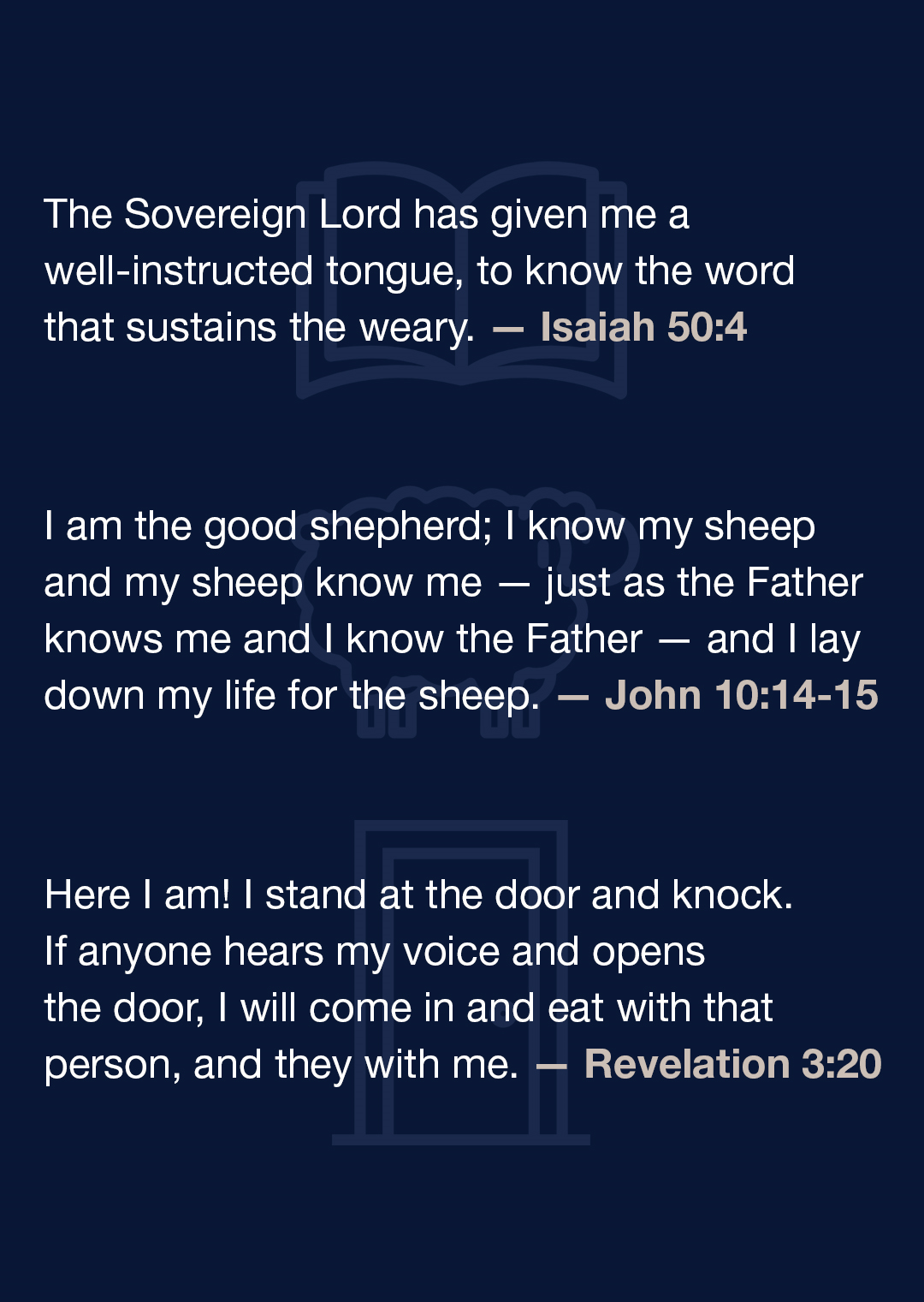
Ready for Impact (10 minutes)
Take time to welcome any newcomers and catch up on the holidays (over drinks or snacks if possible). Then discuss the following question:
- What have you celebrated recently? How did you mark the occasion?
(This could be big or small – a birthday, Christmas, a goal, a good grade etc.)
Over this term, we’re looking at how knowing Jesus gives his followers strength to face the common pressures of life in a way that nothing else can.
Pray a short prayer asking that, however much group members have previously come to know God, they’d know him better as a result of your time together.
Impacted by the Word - Part 1 (10 minutes)
In this first section, we’ll consider what wider society says about finding joy and why joy can feel so fragile.
Download this video to watch offline or read the transcript here.
- What are some of the ways that people try to stay positive in hard times?
- What do we lose if we only focus on ‘positive vibes’?
Impacted by the Word - Part 2 (20 minutes)
Now we’ll consider what the Bible uniquely says about how we can find joy in all of life’s circumstances.
Download this video to watch offline or read the transcript here.
Read Philippians 4:4-9.
Paul says that rejoicing is always possible for those who know God (verse 4).
- In verses 4-9, what does Paul emphasise about God?
- How might knowing God help us to rejoice, even while acknowledging our suffering and struggles?
Paul says that ‘the Lord is near’ (verse 5). He is probably using this phrase in two senses. Jesus is both near to his people and he will return soon to make everything right.
- How can Jesus’ nearness comfort us when we’re feeling joyless?
- How should Jesus’ nearness challenge us when we’re feeling joyless?
Paul says that our hearts and minds need to be ‘guarded’ (verse 7) if we’re not to lose our joy in Jesus.
- What might we need ‘guarding’ from, especially when times are difficult?
- How might Paul’s instructions in verses 8-9 further help us to guard our hearts and minds?
Paul links our experience of joy and peace growing with praying to God (verses 6-7).
- Why might consciously placing what’s troubling us into God’s hands bring a person joy and peace?
The anxiety that Paul speaks about in verse 6 refers to worries and fears that we all, to differing extents, experience throughout our lives. He’s not referring to generalised anxiety disorders, where anxiety is constant, often undefined, and unmanageable. There may be people in your group (including yourself) who are currently experiencing such mental health struggles.
God has given us each other, so allowing group members to share their experiences should be welcomed. The Bible’s teaching about peace and joy doesn’t contradict the fact that all of us – Christians included – can experience times of mental health struggle.
It’s appropriate that any group members who are facing mental health struggle find help beyond the CU. They might start by talking with a parent, your CU Staff Worker, the university welfare team, chaplaincy or counselling services, and a GP. The kindest thing you can do is lead a struggling group member to long-term, sustainable help. If possible, those struggling should also seek help from mature Christians within their local church.
As a CU leader, don’t feel that you need to carry their struggle alone. If you are feeling overburdened, ensure that you also get the support you need, asking for help from someone at your church or from your Staff Worker.
The idea that God’s peace can guard and protect us is a comforting thought. It can bring us rest when we are in the midst of troubling circumstances. Paul emphasises that this peace ‘transcends all understanding’: we cannot comprehend its fullness. The peace Paul speaks of, then, is far beyond that which can be achieved through therapeutic methods.
Paul links this peace with the act of praying. Paul is saying that we should ask God for what we need, expressing gratitude for what we already have in Jesus. These actions are God’s means of wrapping our hearts and minds in his protective peace. We can begin to rest, knowing that our problems have been given over to the only One who can do anything about them.
Impacting Our Hearts (10 minutes)
Paul calls the church in Philippi to meditate on the goodness of Jesus (verse 8). He hopes that this will move them to genuine joy, even in the midst of difficulty.
Download this image and post it in your group chat. Ask a member of your group to slowly read these words of Jesus. Encourage others to read along, or to close their eyes and listen:

- Which image or phrase stands out to you? Why?
Pray together in response, asking that Jesus’ presence and promises would give you all deep joy and comfort, whatever people in your group are facing.
If you’re able to sing in your group time, there are plenty of songs that will help you celebrate how Jesus offers lasting joy, including: Be Still My Soul; What Gift of Grace (Yet Not I) and Come and Stand Before Your Maker (Rejoice).
Impacting the University (15 minutes)
Paul also calls the Philippians to ‘put into practice’ what they’ve learnt from him about Jesus (verse 9). Paul expects knowing Jesus to make a practical difference.
In our own day-to-day lives we encounter situations that can cause us to feel anxious, frustrated or discouraged. We lose connection with our true source of joy.
- Think through your day tomorrow. What are the potential situations that could rob your joy?
- What difference could it make if you prayed in these situations?
- How could living like this make a positive impact on those around you?
Pray for one another, that God would help you to be a joyful, non-anxious presence amongst those around you on campus.
Wrap-up – TACOS 🌮
Thank You – Thank everyone for coming, and ask someone to thank God for your time together in prayer.
Ask – Ask those who are new to reading the Bible if they’d like to explore Uncover, a set of sessions in Mark’s Gospel, allowing them to investigate one of the earliest accounts of Jesus’ life alongside one of you.
Church and CU – What does the CU have planned ahead? And what help would group members value in finding a local church?
Others – Who else could you invite to join your CU Impact Group next week? These friends don’t need to be followers of Jesus and may really appreciate being invited.
See You Soon – Tell the group where and when you’ll meet next week, and arrange who will bring snacks. (You might like to alternate healthy and less healthy weeks!). See if anyone would be up for sharing a meal or just hanging out in the meantime!